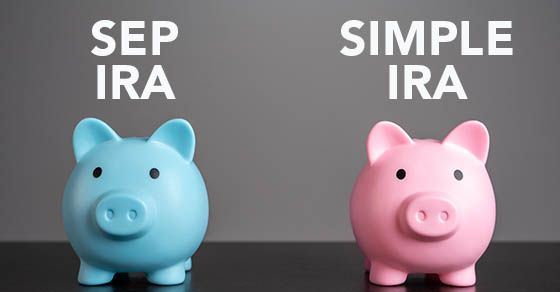Maximize the QBI deduction before it’s gone
- ByPolk & Associates
- Mar, 18, 2024
- All News & Information
- Comments Off on Maximize the QBI deduction before it’s gone
The qualified business income (QBI) deduction is available to eligible businesses through 2025. After that, it’s scheduled to disappear unless Congress acts to extend it. So make the most of the tax break while it’s still on the books. The QBI deduction can be up to 20% of: 1) QBI earned from a sole proprietorship or single-member LLC that’s treated as a sole proprietorship for tax purposes, plus 2) QBI from a pass-through partnership, LLC that’s treated as a partnership or S corporation. QBI is defined as qualified income and gains, reduced by certain items including deductible contributions to certain retirement plans and the deduction for 50% of self-employment tax. Questions? Contact us.
A job loss is bad but the tax implications could make it worse
- ByPolk & Associates
- Mar, 18, 2024
- All News & Information
- Comments Off on A job loss is bad but the tax implications could make it worse
Unemployment is currently low, but some people are still losing their jobs. If you’re one of them, taxes probably aren’t on your mind. However, there may be tax implications. For example, what should you do with amounts you’ve accumulated in your former employer’s retirement plan? A tax-free rollover to an IRA is often the best move. If you keep group health coverage under COBRA, the premiums paid for health insurance are a medical expense. Therefore, they’re deductible if you itemize deductions and your medical expenses exceed 7.5% of adjusted gross income. Complex situations arise if you receive incentive stock options or a golden parachute payment. We can help you make the best decisions.
Beware of a stealth tax on Social Security benefits
- ByPolk & Associates
- Mar, 18, 2024
- All News & Information
- Comments Off on Beware of a stealth tax on Social Security benefits
Some people mistakenly think that Social Security benefits are free from federal income tax. Unfortunately, that’s often not the case. Depending on how much “provisional income” you have, some benefits could be hit with federal tax. Provisional income is your adjusted gross income with some additional calculations. For example, if your provisional income is above $44,000, and you file jointly with your spouse, you must report up to 85% of your Social Security benefits as income on Form 1040. If you don’t file a joint return and your provisional income is above $34,000, you generally must report up to 85% of your Social Security benefits as income. We can calculate any tax on your benefits.
Empower your sellers with sales enablement
- ByPolk & Associates
- Mar, 18, 2024
- All News & Information
- Comments Off on Empower your sellers with sales enablement
The driving revenue force of just about every kind of business is sales. That’s why many companies today are investing in sales enablement. This is an enterprise-wide, collaborative and continuous approach to empowering the sales department to do its best work. Most sales enablement programs feature four primary components: ongoing training, various forms of informative content, coaching (whether external or internal) and a mindful approach to technology. A well-designed program can help new hires get up to speed faster, boost overall sales productivity, enhance sales reps’ knowledgeability and improve employee engagement. If you decide to implement one, contact us for help.
Small businesses can help employees save for retirement, too
- ByPolk & Associates
- Feb, 28, 2024
- Uncategorized
- Comments Off on Small businesses can help employees save for retirement, too
Many small business owners believe they can’t afford to sponsor a qualified retirement plan for employees. If this is the case for your company, be aware that there are some relatively inexpensive, simple options worth considering. For example, you could create SEP IRAs for participants. Only the business can make contributions, but you’re free to do so as cash flow allows. And SEP IRAs enjoy a higher contribution limit than 401(k)s. Or you could offer employees SIMPLE IRAs. These allow both the business and participants to make contributions up to a higher limit than participants could with a self-owned IRA. Plus, your contributions are tax-deductible. Contact us for more info.
Tax-wise ways to take cash from your corporation while avoiding dividend treatment
- ByPolk & Associates
- Feb, 28, 2024
- All News & Information
- Comments Off on Tax-wise ways to take cash from your corporation while avoiding dividend treatment
If you want to withdraw cash from your closely held corporation at a low tax cost, the easiest way is to distribute cash as a dividend. However, a dividend distribution isn’t tax efficient since it’s taxable to you to the extent of your corporation’s “earnings and profits,” but it’s not deductible by the corporation. 5 […]
If you didn’t contribute to an IRA last year, there’s still time
- ByPolk & Associates
- Feb, 28, 2024
- All News & Information
- Comments Off on If you didn’t contribute to an IRA last year, there’s still time
If you’re gathering documents to file your 2023 tax return and you’re concerned that your tax bill may be higher than you’d like, there might still be an opportunity to lower it. If you qualify, you can make a deductible contribution to a traditional IRA right up to the April 15, 2024, filing date and benefit from the tax savings on your 2023 return. For 2023, if you’re qualified, you can make a deductible traditional IRA contribution of up to $6,500 ($7,500 if you’re 50 or over). To qualify, you must meet rules involving your income and whether you (or your spouse) are an active participant in an employer retirement plan. Questions? Contact us or ask when we prepare your return.
Taking your spouse on a business trip? Can you write off the costs?
- ByPolk & Associates
- Feb, 28, 2024
- All News & Information
- Comments Off on Taking your spouse on a business trip? Can you write off the costs?
Post-pandemic business travel is going strong, according to recent research. If you own a business, you may wonder if you can deduct the costs of having your spouse accompany you on business trips. To qualify, your spouse must be your employee. This means you can’t deduct the airfare or meals of a spouse, even if his or her presence has a business purpose, unless the spouse is an actual employee of your business. If your spouse isn’t an employee, you can still deduct the costs of driving your own car or renting one to reach your destination. And you can write off the hotel costs you would have paid if traveling alone — in other words, the single room rate.
Applying for a commercial loan with confidence
- ByPolk & Associates
- Feb, 28, 2024
- All News & Information
- Comments Off on Applying for a commercial loan with confidence
If you and your company’s leadership team believe you’ll soon need a commercial loan, it’s important to approach the endeavor with confidence. That starts with having valid strategic reasons for borrowing. From there, familiarize yourself with four essential questions: 1) How much do you need? 2) How will you use the funds? 3) When do you need the money? 4) How soon can you repay the loan? It also helps to know which loan product you want. To further fortify your case, prepare a comprehensive loan application package that includes a statement of purpose, business plan, three years of financial statements and tax returns, and reasonable financial projections. Contact us for help.
New option for unused funds in a 529 college savings plan
- ByPolk & Associates
- Feb, 28, 2024
- All News & Information
- Comments Off on New option for unused funds in a 529 college savings plan
Many parents begin saving with 529 college savings plans when their children are young. Contributions aren’t tax deductible, but they grow tax deferred. Earnings used to pay qualified education expenses can be withdrawn tax-free. Earnings used for other purposes may be subject to income tax plus a 10% penalty. What if you have a large 529 plan balance but your child doesn’t need all the money for college? There’s a new 529-to-Roth IRA transfer. Beginning in 2024, you can transfer unused funds in a 529 plan to a Roth IRA for the same beneficiary, without tax or penalties. These rollovers are subject to several rules and limits, including that the plan must have existed for at least 15 years.











You must be logged in to post a comment.